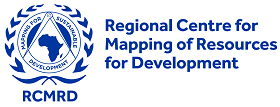Conserving biodiversity in Eastern and Southern Africa is crucial for the region's sustainable development and the well-being of its people. Here are some key actions that countries in Sub-Saharan Africa can take to conserve biodiversity:
Identify and manage protected and conserved areas
Governments should effectively designate and manage protected and conserved areas, such as national parks and nature reserves, to safeguard critical habitats and species. These areas should be adequately funded and equipped with trained personnel for effective conservation.
Enforce anti-poaching measures
Poaching poses a significant threat to wildlife populations. Governments should strengthen anti-poaching efforts by deploying well-trained rangers, implementing stricter law enforcement, and imposing harsh penalties for illegal wildlife trade.
Promote sustainable land use practices
Encouraging sustainable agricultural practices, such as agroforestry and organic farming, can minimize habitat destruction and soil degradation. Governments should provide support and incentives to farmers adopting sustainable approaches.
Strengthen community involvement
Engaging local communities in conservation efforts is crucial, especially in addressing human wildlife conflicts. Governments and development partners should work closely with communities to develop sustainable livelihood options, promote eco-tourism, and provide education and awareness programs about the importance of biodiversity.
Enhance international cooperation
Collaboration with international organizations and neighboring countries is essential for effective biodiversity conservation. Sharing knowledge, resources, and best practices can contribute to stronger conservation efforts in the region.
Combat climate change
Climate change poses a significant threat to biodiversity. Countries should prioritize actions to reduce greenhouse gas emissions, promote renewable energy sources, and implement adaptation strategies to minimize the impacts of climate change on ecosystems.
Support research and monitoring
Investing in scientific research and monitoring programs can provide valuable data on biodiversity trends and inform conservation strategies. Governments should allocate resources to support research initiatives and establish long-term monitoring systems.
Strengthen legislation and policies
Countries should develop and enforce robust environmental laws and policies that prioritize biodiversity conservation. These frameworks should address habitat protection, sustainable resource allocation and management, and the regulation of activities that may harm biodiversity.
Enhance public awareness and education
Governments should actively engage in public awareness campaigns to educate citizens about the importance of biodiversity and the role they can play in conservation. Education programs in schools and communities can foster a sense of stewardship towards the environment.
Secure sustainable funding
Adequate funding is essential for effective conservation efforts. Governments should explore diverse funding sources, such as international grants, public-private partnerships, and ecotourism revenues, to ensure sustainable financing for biodiversity conservation initiatives.
It is essential for countries in Sub-Saharan Africa to integrate these innovative financing strategies into their national policies, work closely with local communities and international partners, and prioritize long-term sustainability to protect the rich biodiversity of the region for future generations.



